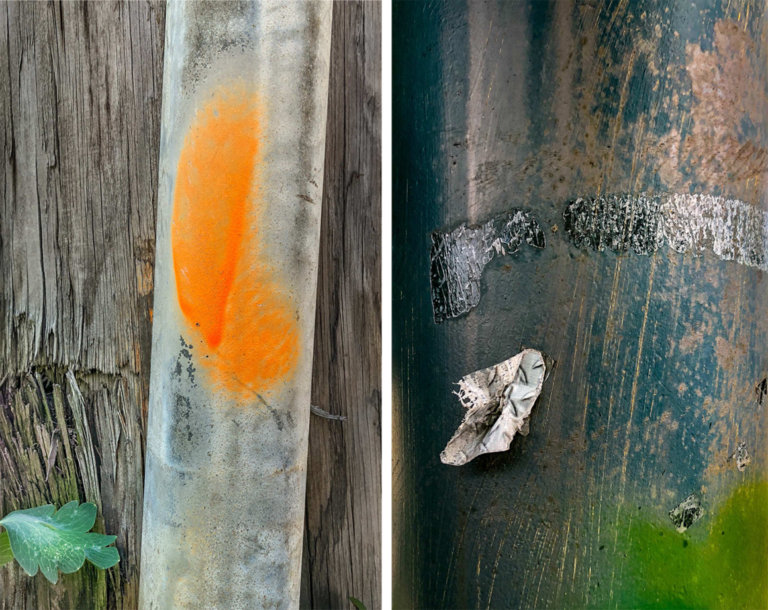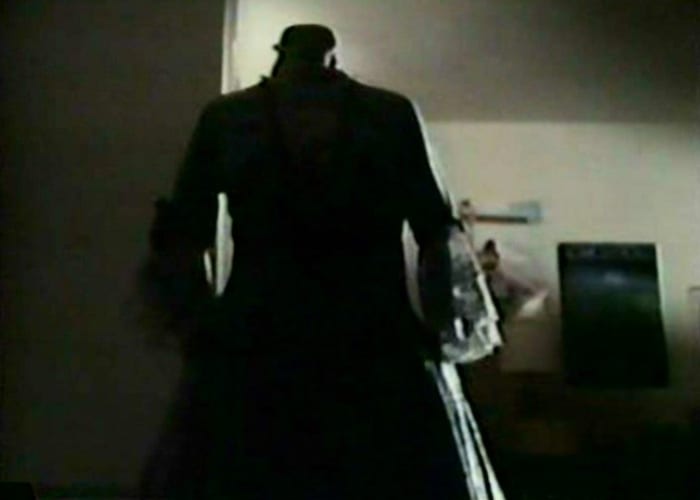How PEN15 Declaws The Asian Tiger Mom Stereotype On Screen
Over the duration of its two seasons (one and a half actually, since the second season still has seven more episodes coming out next year), Pen15 — Hulu’s middle school comedy following the 30-something Maya Erksine and Anna Konkle playing the tween version of themselves — has offered us plenty of memorable, cringe-worthy moments involving AIM chat, masturbation, witchcraft, nightmarish sleepover, and every other early 2000s aesthetics you could ever think of. Anyone who was a preteen in that era will, without doubt, relate to what Erskine, Konkle, and co-creator Sam Zvibleman have made here. But underneath the humor and nostalgia, what Pen15 explores is an emotionally resonant story of adolescent trauma. Even at some points, it delves into some heavy subjects too.
In the outstanding sixth episode of the first season “Posh”, for example, the show addresses racism, microaggressions, and white guilt. In an even more excellent and heartbreaking first half of season two, it dives even deeper into more serious topics such as slut-shaming, gaslighting, and the messy impact of parental separation. Then there’s also another small thing that the show does quietly throughout two seasons, yet nonetheless still has such a great impact, which is the way it tears down the Asian mom stereotype through Maya’s mom character, Yuki, who is played excellently by Erskine‘s real-life mom Mutsuko Erskine.
Yuki Ishii-Peters
Japanese immigrant living in an unnamed American suburb, Yuki is first presented as the typical Asian mom we’ve seen a countless number times before; both strict and strident, and showing a little affection toward her children, especially Maya. Her house is decorated in the most Japanese way possible. A shrine to honor Maya’s Ojiichan (grandfather) is set up at one corner of the house. At the dinner table, they use chopsticks and speak Japanese, though most of the time, Maya responds with English.
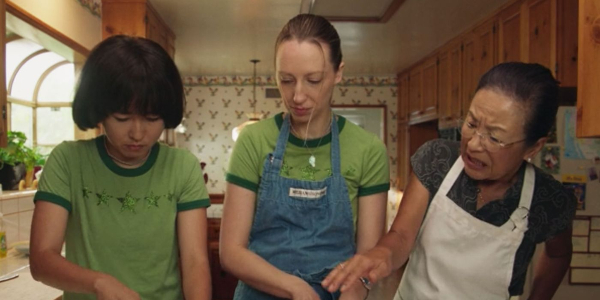
Yuki also doesn’t really say “I love you,” just like most Asian mom characters portrayed in other shows and/or movies. Yet as the show goes on, and her role is getting more integral to Maya’s storyline, she appears to be a lot more nuanced and loving. Instead of sticking with the cliche and taking the easier mainstream route, Pen15 allows Yuki to be an Asian mom character who is larger and more complex than the usual stereotype. The Emmy-nominated penultimate episode of the first season “Anna Ishii-Peters” proves this notion.
In it, we follow Anna as she’s having a sleepover at Maya’s house while her parents, who are on the brink of a divorce, are participating in a couple’s retreat to try to work on their issues. While the first few hours of them spending time together as sisters are full of laughter and magical moments, the friendship between the two is anything but when the sleepover ends. It starts with simple jealousy. Anna, who likes to please every parent of her friends, is trying to be nice and polite by helping Yuki cook dinner and do dishes, which obviously makes Maya a little furious, especially since her mom never lets her help in the kitchen before.
Things aren’t exactly better at the dining table either. Maya feels annoyed when Anna keeps complimenting her mom’s Japanese dinner that Maya doesn’t really like. Then when her dad is praising Anna’s musical skill, Maya gets even angrier. The final nail in the coffin, however, comes when Yuki gives Anna the last oreo in the house. Feeling unloved by her own mom and betrayed by Anna, Maya lashes out to her best friend in front of Yuki. “You have your own family,” she wails. “Can you just go back to your own family?!” But before Anna can respond and reason to Maya, her parents arrive to pick her up.
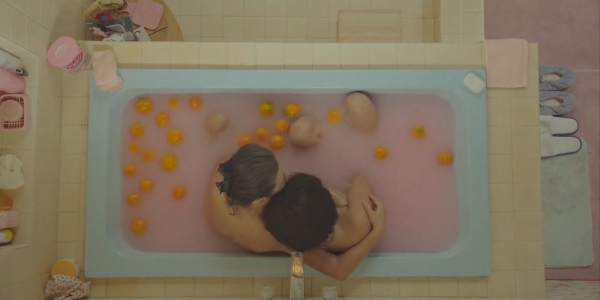
What follows after is when Yuki enters the picture. Naturally, when we’re talking about this kind of situation, with an Asian mom character in the scenario, most of us kinda expect that the mom will unleash back to the daughter and punish her for her bratty attitude, then their relationship will only get even more strained by the end. Well, let me assure you that that’s not the case here. What happens between Maya and Anna isn’t used to fuel more tension within the mother-daughter dynamic of Maya and her mom. Rather, it’s used to cast Yuki in a totally different light as an Asian mom character who is capable of showing love and affection for her daughter.
In one of the most touching scenes of the show, Yuki lays Maya’s head on her lap. Then she tells her that she’s not a little girl anymore and that Anna is going through a tough time right now, so they gotta be there for her. Yuki also assures her that she’ll always be there for her and that even though she’s generally not a little girl anymore, it doesn’t mean that she can’t be her little girl. The fifth episode of season two also has the same touching moment between Maya and Yuki as the two share a lovely heart-to-heart conversation in a bathtub after another sleepover went wrong.
Tearing Down The Cliche
Seeing a mom character offering advice to her daughter, talking her down, and showing affection may not seem that special. After all, she’s a mom who’s just taking care of her child. I’m sure we’ve seen that a lot. But when you put an Asian mom into the equation, that in and of itself feels different and refreshing, especially considering how a typical character that Mutsuko plays here does not often get the same opportunity to be as nuanced as her in other movies and TV shows.
As mentioned above, Asian mom characters tend to be portrayed as strict and emotionally detached, with a narrowed view of what their children are supposed to do in the future, career-wise. Most of the time, they’re not allowed to show affection. Being cold seems to be the only choice. Even in the groundbreaking Crazy Rich Asians, where the mom character has a complicated backbone, she is mostly presented with shades of the tiger mom stereotype. That’s why to see Pen15 declawing that cliche in the smallest way possible, and offers us an Asian mom character like Yuki who is realistic and just as complicated as white moms, it feels pretty revolutionary.
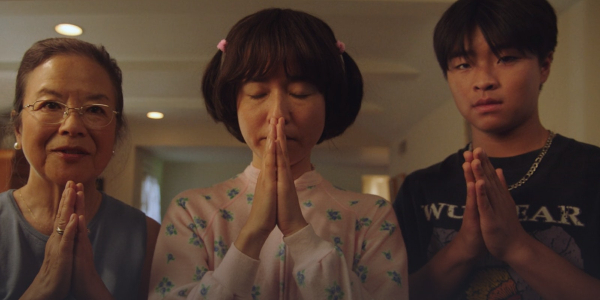
Of course, Pen15 is not the first show who has attempted to defy the Asian mom stereotype. Fresh Off the Boat — ABC’s sitcom focusing on a Taiwanese-American family which just ended its six-season run last February — has Jessica Huang (Constance Wu), a strident Asian mom who as more seasons unfold, shows more depth. Then in CBC, there’s Mrs. Kim (Jean Yoon) from the Korean-Canadian award-winning sitcom Kim’s Convenience, whose journey from shallow-minded Asian mom to a more open one is as heartwarming as it is funny.
But where Pen15 dares to tear down the stereotype heads on, the two latter two shows still at times use the Asian mom cliches as parts of its humor — though thankfully, never once does either Fresh Off the Boat or Kim’s Convenience go too far as being problematic. This is what in the end makes Pen15 a little more game-changing than the other two shows. The fact that its main story is not centered around Maya and Yuki’s experience as an Asian-American family, yet somehow the Asian characters, particularly Yuki, are still written with complexity, makes the show all the more extraordinary.
A Long Way To Go
In the end, what Pen15, or even Fresh Off the Boat, Kim’s Convenience, Crazy Rich Asians and the 90s sitcom All-American Girl have done is pave the way for more nuanced Asian or Asian-American-centered stories to be normalized onscreen. Their steps may not always be big and bold, but their impacts are always substantial. If Pen15 can create an Asian mom character who goes far outside of the stereotypes, then I’m sure that other shows and movies can do the same.
What do you think of Pen15’s portrayal of Yuki? Let us know in the comments below!
Both seasons of Pen15 are streaming on Hulu.
Watch Pen15
Does content like this matter to you?
Become a Member and support film journalism. Unlock access to all of Film Inquiry`s great articles. Join a community of like-minded readers who are passionate about cinema – get access to our private members Network, give back to independent filmmakers, and more.
Join now!

